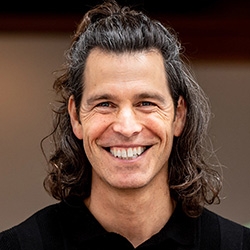
NVC Resources on Conflict
-
Miki Kashtan hosts Living Room Radio Show on KPFA Radio 94.1FM in Berkeley, California, USA. Listen as she works with a mother who is experiencing a strained relationship with her recently married daughter after a verbal “attack” from the daughter. Miki guides the caller to connect with her feelings of fear and her needs for ease of connection, and to further connect with her daughter’s needs.
-
Join Jim and Jori Manske in a thought experiment exercise designed to help us become more aware of our conditioning, allowing us to make more conscious and connected choices in the face of conflict.
-
When bullying occurs, if we do our own healing, our brains can become more sharp and present and willing to take action to connect and to begin to shift and mitigate the harm that trauma does in our world. We can reduce trauma inflicted upon others when we recognize the patterns of abuse and bullying, hold zero tolerance for it, bring in support for both sides of the conflict, and take action to effect systemic change. Read on for more.
-
For us to have a more peaceful world and relationships, growing our skills to engage interdependently is key. An interdependence-oriented person may choose to attend to both inner factors and outer factors that affect their own and others' experiences. Unfortunately, this is likely to be misunderstood by independence-oriented people as enmeshment -- and this is where conflict emerges. Read on for more.
-
Amidst the Israel/Palestine war we see polarizing media portrayals and the battle for public opinion. Read how one person shares his deep, personal connections to the Israel/Palestine conflict, expresses the trauma and viewpoints of both Palestinian and Israeli experiences -- in a way that aims to transcend polarizations, hold compassion, and understand the complexity on both sides. Despite the immense challenge that defies easy resolution, he holds hope, noting historical reconciliations such as the ones between Germans and Jews.
-
Hearing "no" can bring emotional pain, but it can be delivered in a way that minimizes discomfort. We can find the gift in the request, express feelings and needs instead of saying "no," and offer an alternative solution that supports all parties. This approach fosters honesty, respect, and understanding, while setting boundaries if necessary to protect oneself. Clear communication reduces the likelihood of conflict.
-
In this excerpt from Roxy Manning's 2019 Social Change session at the NVCfest, she explores the application of Nonviolent Communication (NVC) to address both immediate conflicts and broader systemic issues. She emphasizes the importance of intervening at multiple levels, from stopping harmful behavior in the moment to driving long-term societal change.
-
So many of us have been taught to solve conflicts by what is “fair.” However, Miki Kashtan states that fairness is a separating concept. In this video, she describes how when we do not have the conditions to care for all needs involved, when we live within separation, fairness is second best. 
-
Discover how fostering strong attachment and connection with your child can lead to fewer conflicts and more harmonious interactions. Ingrid Bauer offers practical guidance on using empathy, self-connection, and consistent care to create a secure and loving environment for your child.
-
This audio training with expert trainer Rita Herzog explores the NVC alternative to family relationships: stay grounded in your own needs and values so you are able to reach out with empathy to family members.











